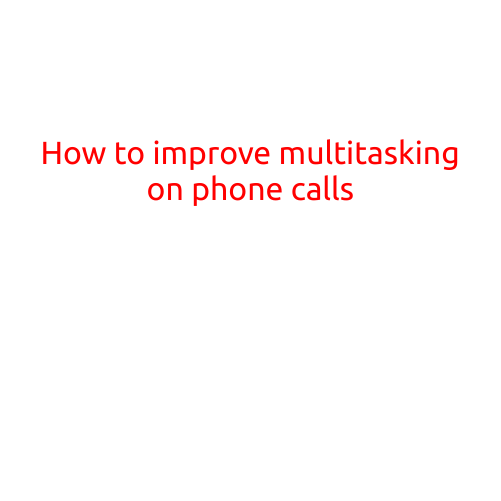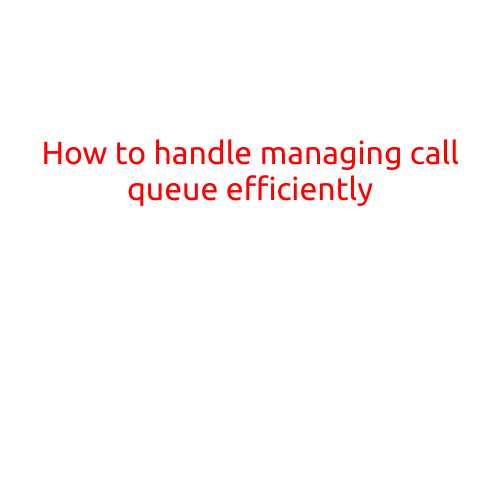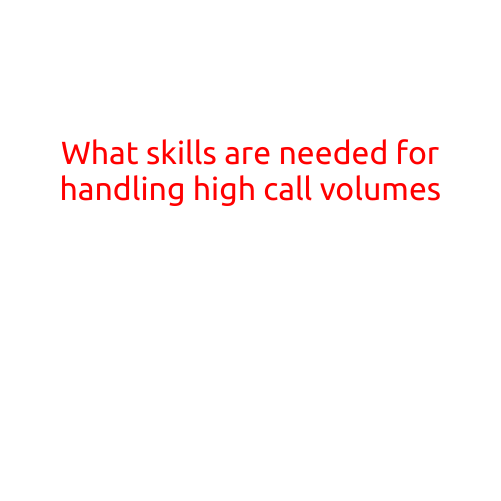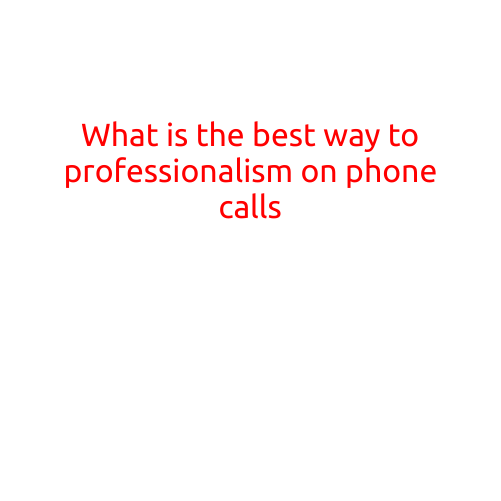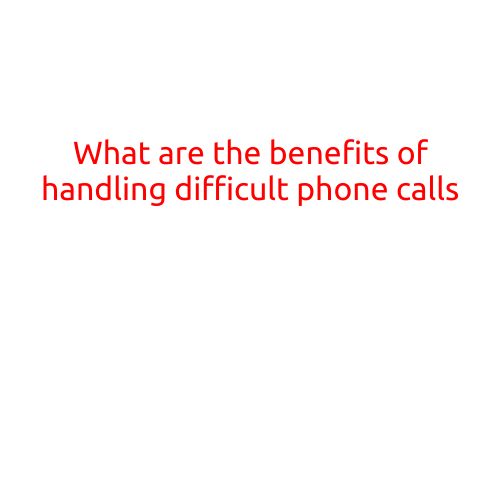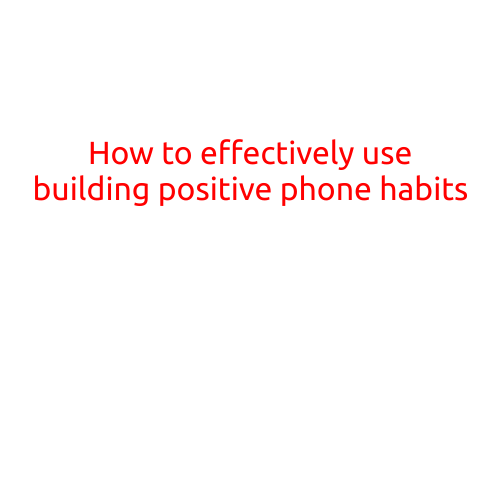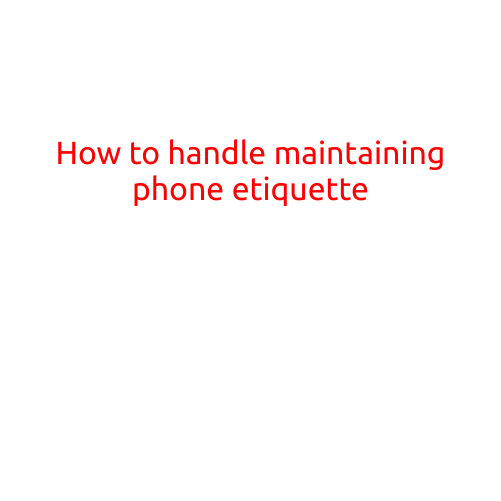
How to Handle Maintaining Phone Etiquette
In today’s digital age, our phones have become an essential part of our daily lives. With the constant influx of calls, texts, and emails, it’s easy to forget the importance of maintaining good phone etiquette. However, poor phone etiquette can lead to misunderstandings, missed opportunities, and even hurt feelings. In this article, we’ll delve into the importance of maintaining good phone etiquette and provide tips on how to handle it like a pro.
Why is Phone Etiquette Important?
Phone etiquette is more than just a nicety; it’s a crucial aspect of communication. When we maintain good phone etiquette, we:
- Build trust and respect: Good phone etiquette shows that we respect the person on the other end of the line, creating a stronger bond and fostering trust.
- Avoid misunderstandings: Clear and concise communication helps prevent miscommunications and ensures that our message is conveyed correctly.
- Show professionalism: In a work setting, good phone etiquette is essential for making a good impression and building a professional reputation.
- Enhance relationships: By being respectful, attentive, and considerate on the phone, we strengthen our relationships and show we value the other person’s time.
Tips for Maintaining Good Phone Etiquette
- Answer calls promptly and politely: When someone calls, answer with a greeting, such as “Hello, [Your Name]” or “Thank you for calling [Your Name].”
- Use a friendly and professional tone: Speak clearly, calmly, and confidently. Avoid using slang, jargon, or overly technical language that might confuse the listener.
- Be attentive and focused: Put away distractions, such as TVs, radios, or other conversations, and give the person on the line your undivided attention.
- Use your earpiece or headset: When taking a call, use an earpiece or headset to keep your hands free and avoid background noise.
- Be patient and don’t interrupt: Let the other person finish speaking before you respond. Avoid interrupting, even when you think you know what they’re going to say.
- Keep it short and sweet: Keep your calls concise and to the point. Avoid rambling or telling lengthy stories, especially if you’re on a professional call.
- Use a professional greeting: When leaving a voicemail, introduce yourself, state the purpose of the call, and provide your contact information.
- Return calls promptly: If you’re unavailable to answer a call, return it as soon as possible to show that you value the other person’s time.
- Use respectful language: Avoid using profanity, making offensive comments, or using derogatory terms.
- Be mindful of your surroundings: When on a call, be aware of your surroundings and avoid loud noises or distractions that might disrupt the conversation.
Common Phone Etiquette Mistakes to Avoid
- Ignoring calls or voicemails: Return calls and voicemails promptly to show you value the other person’s time.
- Leaving long, rambling voicemails: Keep your messages short and to the point.
- Using unprofessional language: Avoid using slang, jargon, or overly technical language that might confuse the listener.
- Interrupting or talking over others: Let the other person finish speaking before you respond.
- Making excuses or lying: Be honest and transparent in your communication.
Conclusion
Maintaining good phone etiquette is crucial in today’s fast-paced, technology-driven world. By following these simple tips and avoiding common mistakes, you’ll be well on your way to becoming a phone etiquette pro. Remember, good phone etiquette is about showing respect, being attentive, and communicating clearly and professionally. By prioritizing good phone etiquette, you’ll build stronger relationships, enhance your professional reputation, and make a positive impression on those you interact with.
